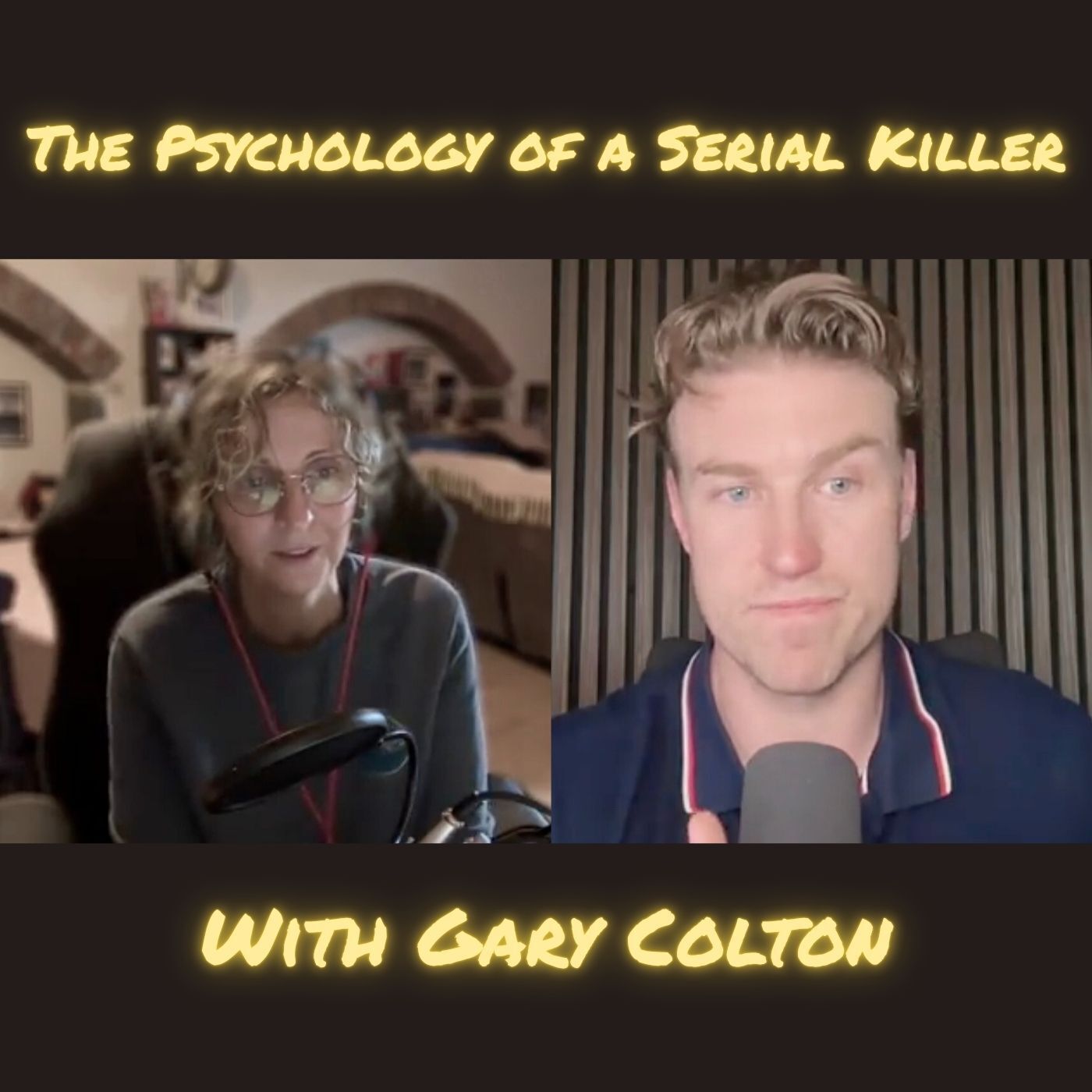True Crime Obsession: Why Are We So Fascinated?

Our collective fascination with true crime is undeniable. From podcasts and documentaries to books and TV shows, stories of real-life crimes captivate audiences worldwide. But why are we so drawn to the macabre? What is it about these often disturbing narratives that hold our attention? This blog post aims to delve into the psychological and sociological factors that fuel our interest in true crime, exploring the dark allure while also acknowledging the potential pitfalls of this fascination.
This topic was explored in depth in my recent podcast episode, The Psychology of a Serial Killer with Gary Colton. Gary Colton, a psychology expert, joined us to discuss the minds of criminals, the societal influences at play, and the reasons behind our intrigue with true crime. In this post, we’ll expand on those conversations, providing a comprehensive look at this compelling phenomenon.
Introduction: Our Fascination with True Crime
True crime as a genre has exploded in popularity in recent years. It seems like everywhere you look, there's a new documentary series, a gripping podcast, or a bestselling book detailing horrific crimes. But this fascination isn't new. Throughout history, humans have been captivated by stories of violence and transgression. From ancient folklore to Victorian penny dreadfuls, tales of murder and intrigue have always held a certain allure.
So, what is it about true crime that makes it so compelling? Is it the thrill of the unknown, the desire to understand the inexplicable, or something more profound? The answer is complex and multifaceted, involving a combination of psychological, sociological, and even evolutionary factors.
The Psychology Behind True Crime Obsession
One of the primary reasons for our fascination with true crime lies in our innate psychological makeup. We are naturally curious creatures, driven to understand the world around us, including the darkest corners of human behaviour. True crime stories provide a window into these dark corners, allowing us to explore the motivations and actions of individuals who commit heinous acts.
From a psychological perspective, true crime can offer a sense of control in a world that often feels chaotic and unpredictable. By studying the patterns and motivations of criminals, we may feel more prepared to identify potential threats and protect ourselves and our loved ones. It's a way of confronting our fears and anxieties in a controlled environment.
Furthermore, true crime stories can be intellectually stimulating. They often involve complex investigations, intricate legal proceedings, and psychological analyses. For many, unraveling these complexities is a form of entertainment, a mental puzzle that engages our cognitive abilities.
Gary Colton's Insights on Serial Killers
In our podcast episode, Gary Colton shared his expertise on the psychology of serial killers, offering valuable insights into their motivations and behaviours. Gary emphasised the importance of understanding the individual backgrounds and experiences that contribute to the development of a serial killer. He highlighted that it's rarely a single factor but rather a combination of genetic predispositions, environmental influences, and traumatic events that can lead to such extreme violence.
Gary also discussed the common misconceptions surrounding serial killers, debunking the myth that they are all inherently evil or insane. While their actions are undoubtedly horrific, understanding the psychological factors at play can provide a more nuanced and comprehensive perspective. This understanding, however, should never be mistaken for excusing or minimising the severity of their crimes.
The 'Dark Triad' and Serial Killer Personalities
The "Dark Triad" is a concept frequently discussed in the context of criminal psychology. It refers to a cluster of three distinct but related personality traits: narcissism, Machiavellianism, and psychopathy. These traits are often found in individuals who commit violent crimes, particularly serial killers.
- Narcissism: Characterised by an inflated sense of self-importance, a need for admiration, and a lack of empathy. Narcissists often believe they are superior to others and are entitled to special treatment.
- Machiavellianism: Involves manipulation, deceit, and a cynical view of human nature. Individuals high in Machiavellianism are often skilled at exploiting others for their own personal gain.
- Psychopathy: Defined by a lack of empathy, impulsivity, and antisocial behaviour. Psychopaths often have a disregard for the feelings and rights of others and may engage in risky or illegal activities without remorse.
While not all individuals with these traits become criminals, their presence can significantly increase the risk of engaging in violent behaviour. Understanding the Dark Triad can provide valuable insights into the motivations and behaviours of serial killers and other violent offenders.
Motivations Behind Familicide
Familicide, the act of killing one's own family, is a particularly disturbing and complex crime. The motivations behind familicide are often multifaceted and deeply rooted in psychological and emotional distress.
Some common motivations include:
- Financial Stress: Overwhelming debt, job loss, or other financial hardships can lead to feelings of hopelessness and desperation, driving individuals to commit familicide as a way to escape their perceived burdens.
- Relationship Problems: Marital discord, infidelity, or domestic violence can create a toxic environment that escalates to extreme violence.
- Mental Illness: Untreated or poorly managed mental health conditions, such as depression, psychosis, or personality disorders, can impair judgment and increase the risk of violent behavior.
- Control and Revenge: In some cases, familicide is motivated by a desire to control or punish family members, often stemming from feelings of resentment or anger.
Understanding the complex interplay of these factors is crucial for preventing future tragedies and providing support for individuals and families at risk.
The Impact of Social Media on True Crime Cases
Social media has profoundly impacted the way true crime cases are investigated, reported, and consumed. While social media can be a valuable tool for law enforcement and journalists, it also presents several challenges and potential pitfalls.
On the positive side, social media can help to:
- Generate Leads: Social media platforms can be used to solicit information from the public, gather evidence, and identify potential witnesses.
- Raise Awareness: Social media campaigns can help to raise awareness about missing persons cases or unsolved crimes, generating public interest and support.
- Crowdsource Investigations: Online communities can collaborate to analyse evidence, identify suspects, and contribute to investigations.
However, social media can also:
- Spread Misinformation: False or inaccurate information can quickly spread through social media, potentially jeopardising investigations and damaging reputations.
- Hinder Investigations: Social media posts can be deleted or altered, making it difficult to gather reliable evidence.
- Traumatise Victims and Families: Graphic images and videos of crime scenes can be widely shared on social media, causing further trauma to victims and their families.
It's essential to approach true crime content on social media with a critical eye, verifying information and considering the potential impact on victims and their families.
Recent True Crime Cases: Irish and International Examples
The podcast also touched on some recent true crime cases, both in Ireland and internationally. Cases like the Michael Gaine case and the Tina Satchwell case in Ireland continue to fascinate and disturb the public, highlighting the lasting impact of these crimes on communities.
Internationally, cases like the Chris Watts case, where a man murdered his pregnant wife and two daughters, have garnered widespread attention due to their shocking nature and the complex psychological factors involved. These cases serve as stark reminders of the darkness that can exist within human nature and the importance of understanding the motivations behind such horrific acts.
The Role of Childhood Experiences in Criminal Behaviour
Research consistently demonstrates a strong link between childhood experiences and the likelihood of engaging in criminal behaviour later in life. Adverse childhood experiences (ACEs), such as abuse, neglect, and exposure to violence, can have profound and lasting effects on brain development, emotional regulation, and social functioning.
Children who experience ACEs are more likely to:
- Develop mental health problems, such as depression, anxiety, and PTSD.
- Engage in substance abuse.
- Experience difficulties in school and relationships.
- Engage in criminal behaviour.
Addressing ACEs and providing support for children and families at risk is crucial for preventing future crime and promoting healthy development.
Societal Factors Contributing to True Crime Interest
Our fascination with true crime is not solely a psychological phenomenon; it's also influenced by societal factors. The media plays a significant role in shaping our perceptions of crime and violence, often sensationalising and exaggerating the risks.
Additionally, societal inequality, poverty, and lack of opportunity can contribute to both crime and our interest in it. True crime stories often reflect the social and economic disparities that exist in our communities, highlighting the challenges faced by marginalised populations.
Furthermore, the rise of true crime as entertainment can be seen as a reflection of our culture's obsession with celebrity and spectacle. High-profile cases often become media sensations, drawing widespread attention and blurring the lines between justice and entertainment.
Balancing Intrigue with Awareness: The Pitfalls of True Crime Obsession
While our fascination with true crime can be intellectually stimulating and even cathartic, it's essential to approach it with awareness and sensitivity. Overconsumption of true crime content can lead to desensitisation to violence and a distorted perception of risk.
It's also crucial to remember that true crime stories involve real victims and their families who have suffered unimaginable loss. We must avoid sensationalising or exploiting their pain for entertainment purposes.
Instead, we should strive to engage with true crime content in a responsible and ethical manner, focusing on understanding the underlying causes of crime and promoting empathy and support for victims.
Conclusion: Understanding Our Dark Fascination
Our fascination with true crime is a complex and multifaceted phenomenon rooted in our psychological makeup, societal influences, and innate curiosity. By exploring the motivations behind our interest in these stories, we can gain a deeper understanding of ourselves and the world around us.
As we discussed in our episode, The Psychology of a Serial Killer with Gary Colton, it's essential to approach true crime content with awareness, sensitivity, and a critical eye. By balancing our intrigue with a commitment to ethical consumption, we can engage with these stories in a way that is both informative and respectful of victims and their families.



